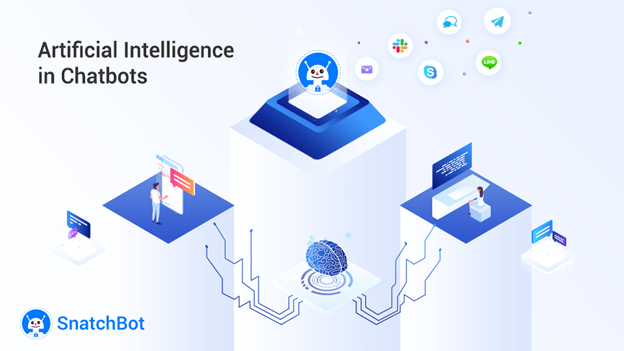There is no doubt that chatbots have completely transformed just about every industry, but now it has infiltrated the legal services industry. It’s now possible for individuals to speak with virtual lawyers online, and at no cost.
Of course, this does not mean that chatbot lawyers will ever be able to take the place of real lawyers no matter how AI advances. However, administrative and financial matters can be made simpler through automated services.
This means that lawyers are able to shift their focus to the truly significant legal matters which cannot be replaced by an automated service. This not only offers their clients a chance at better service, but also increases their income potential.
What is SnatchBot?
Created by Henri Ben Ezra and and Avi Ben Ezra in 2015, SnatchBot was the culmination of a desire to make bot-building accessible to everybody. According to Avi, “it is our hope that we can teach technology how to not only understand human language, but also to speak it. This is closer than many might think, and our company is establishing exceptionally intelligent bots which can strengthen the way in which smart communication can take place between businesses and clients in order to build relationships which are not only genuine, but will also stand the test of time.”
What can legal chatbots be used for?
There are numerous ways legal chatbots can be used for in order to assist customers. Depending on your requirements, you can enable it to do various things depending on the information that you feed into it. In recent times, chatbots have even been used to aid in the overturning of 160,00 parking tickets.
However, these are some of the most important AI legal services which are right around the corner.
Fast and Easy Legal Advice
In a very small amount of time, your clients can now get answers to some of their simpler legal questions. These could include financial services legal questions, matters relating to their legal rights in general, or if they need surplus information on a singular law. The law bot can answer them efficiently and quickly 24/7.
This takes a lot of pressure off of lawyers who get bombarded with questions which need quick legal advice. It’s especially useful that the bot can answer questions at any time of the day and night – a feature which 64% of internet users find the most significant.
Lead Generation
If the legal chatbot provides extraordinary service, it will most likely lead to an increase in leads. Although there isn’t really a true substitute for human interaction, the use of an exceptional legal chatbot can play a significant role in taking a lead and turning it into a conversion. Although it can answer simple legal matters, it will know at which time the client needs to be directed to a real lawyer.
The use of AI, natural language processing or NLP, and machine learning means that the conversation between client and chatbot follows along seamlessly. This means that the leads are unlikely to bounce back.
Setting Up Appointments with Clients
This is one of the most monotonous matters any law firm must oversee. The time spent arranging a time to meet could be better used in becoming thoroughly familiarised with the case. Although completely indispensable, it does also take a lot of time.
The chatbot gives lawyers the ability to get to grips with the particulars of a client’s case without needing to spend hours initiating contact via phone or email.
Getting Information That You Can Use for Content Creation
This is especially useful for websites which run blogs on the latest legal news. After a while, it may seem that topics for new blogs are pretty thin on the ground. AI algorithms have the ability to conduct legal research using artificial intelligence by working through mounds of information in order to find the most relevant.
Another way in which AI can help is by looking at the online legal chat questions and ascertaining the most prominent topics so that lawyers can focus on those that most people struggle with the most.
Final Take:
The legal industry ultimately still functions like any other business – in search of efficiency and the simplification of complicated processes in order to optimize performance. The mountain of work relating to research and supporting data which stands between a law firm and successful legal representation of their client is one which law firms have had to deal with through the employment of paralegals and newly graduated individuals.
The automation of some of these legal processes thus minimises the time which human lawyers have to waste before being able to use their agile minds to debate the way only a lawyer can in a court of law.




